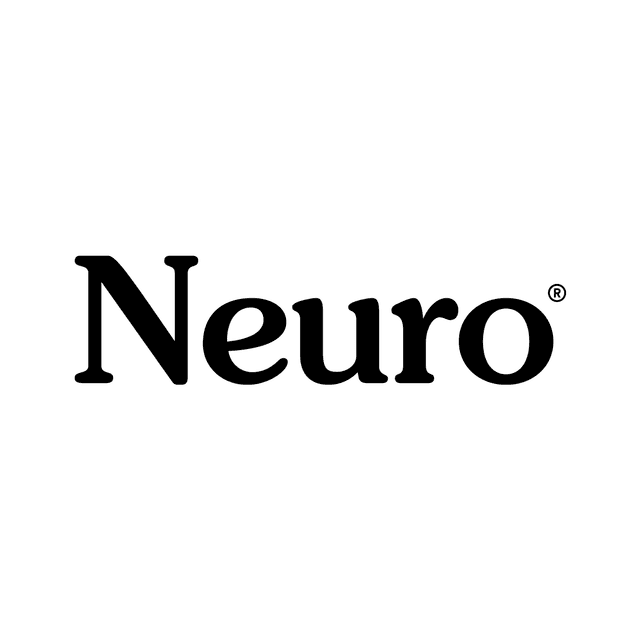Omega-3 fatty acids are essential nutrients that play a critical role in maintaining our health. These healthy fats are crucial for the proper functioning of our heart, brain, and other vital organs. Since our bodies cannot produce omega-3s on their own, we must obtain them through our diet or supplements. This article explores the various types of omega-3s, their health benefits, and how to incorporate them into your daily routine.
Key Takeaways
- Omega-3 fatty acids are essential for overall health, especially for the heart and brain.
- Our bodies cannot produce omega-3s, so we need to get them from food or supplements.
- Common sources of omega-3s include fatty fish, flaxseeds, and walnuts.
- Omega-3s can help reduce inflammation and lower the risk of chronic diseases.
- It's important to consume the right amount of omega-3s to avoid deficiency.
Understanding Omega-3 Fatty Acids
Types of Omega-3 Fatty Acids
Omega-3 fatty acids are a type of polyunsaturated fat that are essential for our health. There are three main types: ALA (alpha-linolenic acid), EPA (eicosapentaenoic acid), and DHA (docosahexaenoic acid). ALA is mostly found in plant oils, while EPA and DHA are commonly found in fish and other seafood.
Sources of Omega-3 Fatty Acids
You can get omega-3s from various foods. Some of the best sources include:
- Fatty fish like salmon, mackerel, and sardines
- Flaxseeds and chia seeds
- Walnuts
- Plant oils such as flaxseed oil, soybean oil, and canola oil
Daily Recommended Intake
The amount of omega-3s you need can depend on your age and sex. Generally, it's recommended that adults get at least 250-500 mg of combined EPA and DHA per day. For ALA, the recommended daily intake is about 1.1 grams for women and 1.6 grams for men.
Omega-3 fatty acids are crucial for maintaining overall health, and it's important to include them in your diet regularly.
Health Benefits of Omega-3 Fatty Acids
Cardiovascular Health
Omega-3 fatty acids are known to support heart health. They help reduce inflammation, which can damage blood vessels and lead to heart disease. These fats can also lower blood pressure and reduce triglycerides, making them essential for cardiovascular wellness.
Brain and Eye Health
Omega-3s are crucial for brain and eye development and function. They are found in high amounts in the brain and retina, helping to maintain cognitive function and vision. Regular intake of omega-3s can support mental clarity and eye health.
Anti-Inflammatory Properties
One of the key benefits of omega-3 fatty acids is their ability to reduce inflammation. This can help manage conditions like arthritis and other inflammatory diseases. By lowering inflammation, omega-3s contribute to overall health and well-being.
Omega-3 fatty acids are incredibly important for maintaining various aspects of health, from the heart to the brain and beyond.
Omega-3 Fatty Acids and Disease Prevention
Heart Disease
Omega-3 fatty acids are known to play a significant role in heart health. They help reduce the risk of heart disease by lowering blood pressure and cholesterol levels. Including omega-3 rich foods in your diet can also help prevent the formation of blood clots, which can lead to heart attacks.
Diabetes
For individuals with diabetes, omega-3 fatty acids can be particularly beneficial. These healthy fats help improve insulin sensitivity, which is crucial for managing blood sugar levels. Additionally, omega-3s can reduce inflammation, a common issue for those with diabetes.
Hypertension
High blood pressure, or hypertension, is a major risk factor for heart disease and stroke. Omega-3 fatty acids have been shown to help lower blood pressure levels. Incorporating foods like salmon, flaxseeds, and walnuts into your diet can be an effective way to manage hypertension.
Regular consumption of omega-3 fatty acids can contribute to overall better health and aid in the prevention of several chronic diseases.
Omega-3 Deficiency: Symptoms and Risks
Common Symptoms
Omega-3 deficiency is not very common in the U.S., but it can still occur. Common symptoms include rough, scaly skin and a red, itchy rash. Other signs might be fatigue, poor memory, and mood swings.
Long-term Health Risks
Lack of omega-3 fatty acids over a long period can lead to more serious health issues. These may include heart problems, poor circulation, and even depression. Omega-3s are crucial for brain and eye health, so a deficiency can also affect cognitive function and vision.
How to Address Deficiency
To address an omega-3 deficiency, consider the following steps:
- Increase dietary intake: Eat more omega-3 rich foods like fish, flaxseeds, and walnuts.
- Consider supplements: Talk to your doctor about taking omega-3 supplements.
- Monitor symptoms: Keep track of any changes in your health and consult a healthcare provider if symptoms persist.
It's important to consult with a healthcare provider before making significant changes to your diet or starting new supplements.
Should You Take Omega-3 Supplements?
Benefits of Supplementation
For those who don't consume enough omega-3 through their diet, supplements can be a helpful option. Omega-3 supplements can support heart health, brain function, and reduce inflammation. They are especially useful for individuals who don't eat fatty fish regularly.
Potential Side Effects
While omega-3 supplements can be beneficial, it's important to be aware of potential side effects. High doses can lead to issues like bleeding or digestive problems. Always consult with a healthcare provider before starting any supplement regimen.
Choosing the Right Supplement
When selecting an omega-3 supplement, consider factors like the type of omega-3 (EPA, DHA, or ALA), the source (fish oil, algae oil), and the dosage. Look for products that are third-party tested for purity and potency.
It's crucial to talk to your doctor before taking omega-3 supplements, especially if you have underlying health conditions or are taking other medications.
Incorporating Omega-3 into Your Diet
Omega-3 Rich Foods
Adding omega-3 fatty acids to your diet can be simple and delicious. Fatty fish like salmon, mackerel, and sardines are excellent sources. If you prefer plant-based options, consider flaxseeds, chia seeds, and walnuts. These foods can easily be included in your daily meals.
Cooking Tips
Incorporating omega-3s into your cooking doesn't have to be complicated. Here are some easy tips:
- Swap olive oil for flaxseed oil in salad dressings.
- Add chia seeds to your smoothies or yogurt.
- Sprinkle ground flaxseeds on your cereal or oatmeal.
- Grill or bake fish instead of frying it to keep it healthy.
Meal Planning
Planning your meals ahead of time can help ensure you get enough omega-3s. Here’s a simple weekly plan:
| Day | Meal Idea |
|---|---|
| Monday | Grilled salmon with quinoa |
| Tuesday | Chia seed pudding for breakfast |
| Wednesday | Tuna salad with mixed greens |
| Thursday | Flaxseed-enriched smoothie |
| Friday | Baked mackerel with vegetables |
| Saturday | Walnut and berry oatmeal |
| Sunday | Sardine pasta with tomato sauce |
Including a variety of omega-3 rich foods in your diet can help you meet your nutritional needs and support overall health.
Omega-3 Fatty Acids for Specific Populations
Children and Adolescents
Omega-3 fatty acids are crucial for the growth and development of children and teenagers. These essential fats support brain development and cognitive function. Including foods like fish, flaxseeds, and walnuts in their diet can help meet their omega-3 needs.
Pregnant and Nursing Women
For pregnant and nursing women, omega-3s are vital for the baby's brain and eye development. DHA, a type of omega-3, is especially important. Consuming fish low in mercury, such as salmon and sardines, can provide the necessary nutrients without the risk of mercury exposure.
Elderly Population
In older adults, omega-3 fatty acids can help maintain heart health and cognitive function. They may also reduce the risk of age-related diseases like Alzheimer's. Including omega-3 rich foods or supplements in their diet can be beneficial.
Ensuring adequate omega-3 intake across different life stages can support overall health and well-being.
Conclusion
In summary, omega-3 fatty acids play a crucial role in maintaining our overall health. These healthy fats support brain function, heart health, and even help reduce inflammation. Since our bodies can't produce omega-3s on their own, it's important to include them in our diet through foods like fish, flaxseeds, and walnuts, or through supplements. By making sure we get enough omega-3s, we can help our bodies function better and stay healthier in the long run.
Frequently Asked Questions
What are omega-3 fatty acids?
Omega-3 fatty acids are a type of healthy fat that your body needs but can't make on its own. You have to get them from food or supplements.
What are the benefits of omega-3 fatty acids?
Omega-3 fatty acids help keep your heart healthy, support brain and eye health, and reduce inflammation in the body.
What foods are high in omega-3 fatty acids?
Foods rich in omega-3s include fatty fish like salmon and mackerel, flaxseeds, chia seeds, and walnuts.
How much omega-3 should I consume daily?
It's generally recommended to get about 250-500 mg of omega-3s per day from food or supplements, but it's best to consult with a healthcare provider for personalized advice.
Can I take omega-3 supplements?
Yes, you can take omega-3 supplements, especially if you don't get enough from your diet. However, it's important to choose high-quality supplements and consult with a healthcare provider.
What are the symptoms of omega-3 deficiency?
Symptoms of omega-3 deficiency can include dry skin, poor memory, mood swings, and fatigue.




















